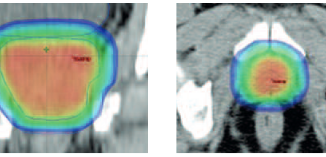The conclusions of the 2012 Prostate, Lung, Colorectal, and Ovarian Cancer Screening Trial (PLCO) could be wrong: the authors of the trial – published on the Journal of the National Cancer Institute – had found no reduction in prostate cancer mortality, but a reanalysis of the original data just published on the Annals of Internal Medicine by Ruth Etzioni and colleagues of the Fred Hutchinson Cancer Research Center found instead a significant reduction, between 27 and 32 percent: «If a screening test reduces cancer mortality by 20 percent, it’s considered a successful test» Etzioni said. «I think the mortality reduction we calculate is a significant benefit. This is a screening test that saves lives».
The researchers reanalyzed the data both from the European Randomized Study of Screening for Prostate Cancer (published in Lancet in 2014) and from the PLCO: while the European trial attributed to the screening a reduction in prostate cancer mortality, the PLCO had originally found no reduction. Now the new conclusion is consistently in favor of the PSA screening, that over 11 years’ follow-up appears to provide a 25-30 percent decrease in prostate cancer mortality.
«In summary, PSA-based screening does reduce prostate cancer mortality, but whether this benefit out-weighs the harms of overdiagnosis and overtreatment depends on how screening is implemented» concludes the accompanying editorial, by Andrew J. Vickers, PhD, of the Memorial Sloan Kettering Cancer Center in New York. «Unfortunately, the way screening has been implemented in the United States leaves much to be desired. The controversy about PSA-based screening should no longer be whether it can do good but whether we can change our behavior so that it does more good than harm».





